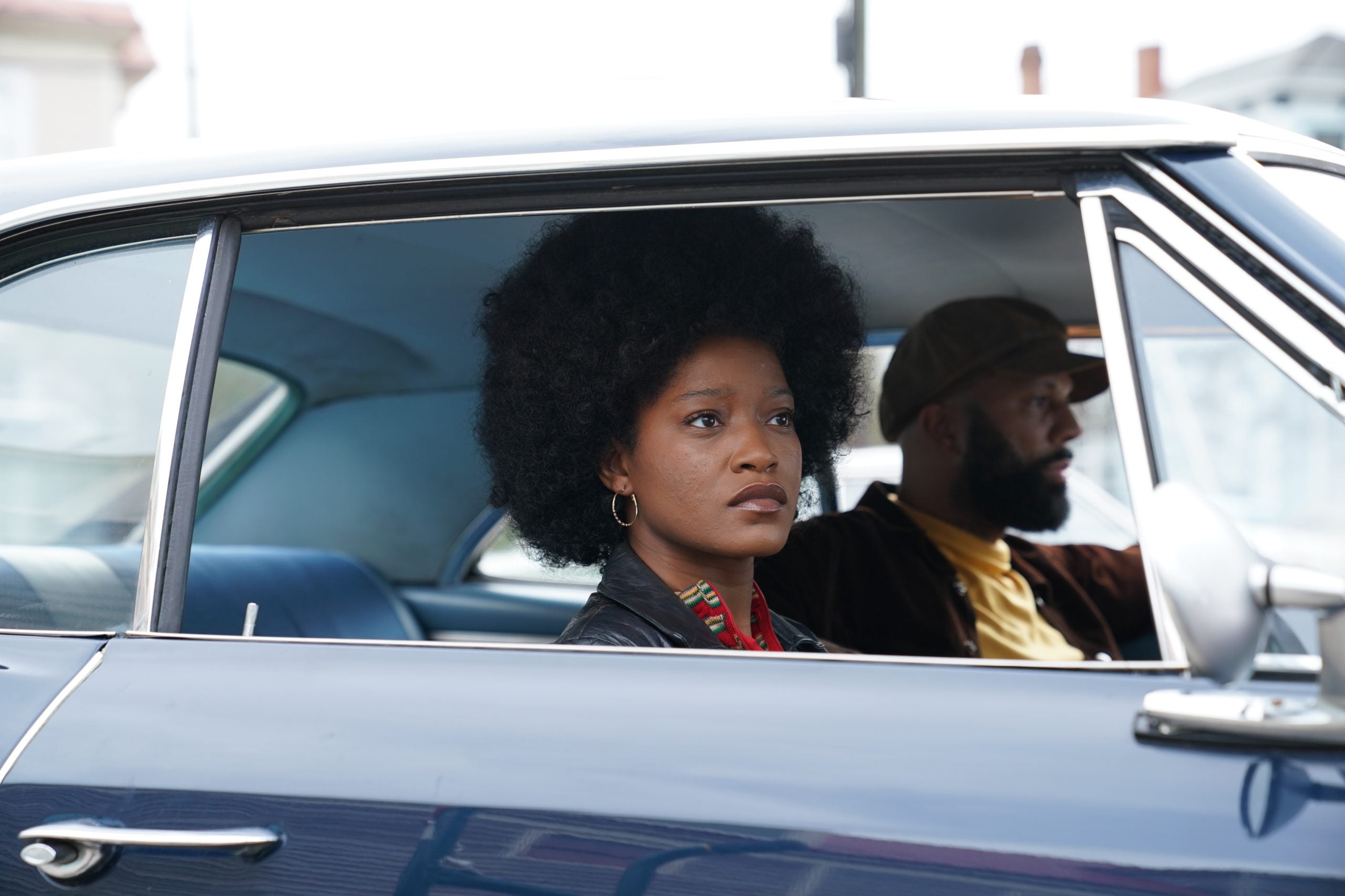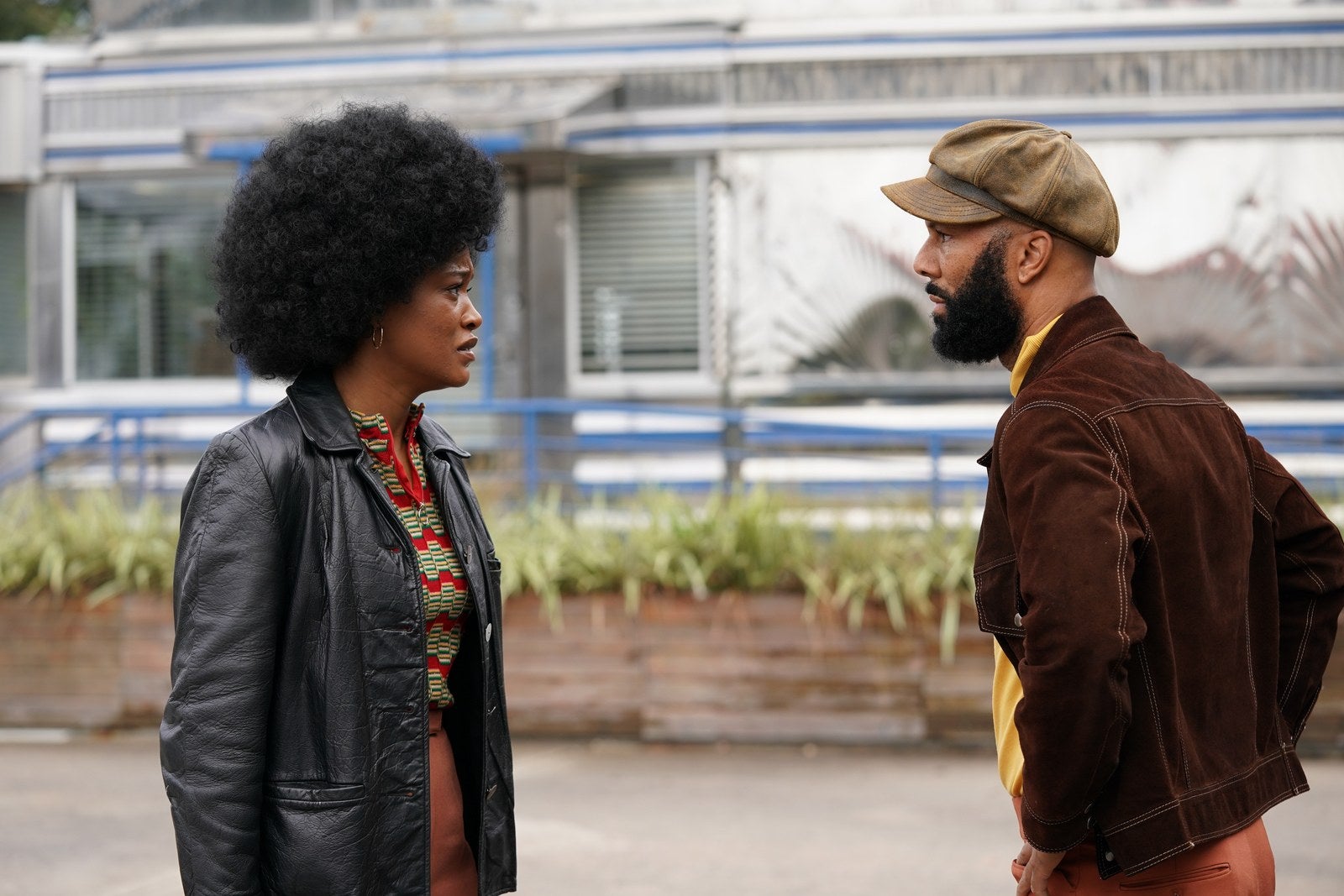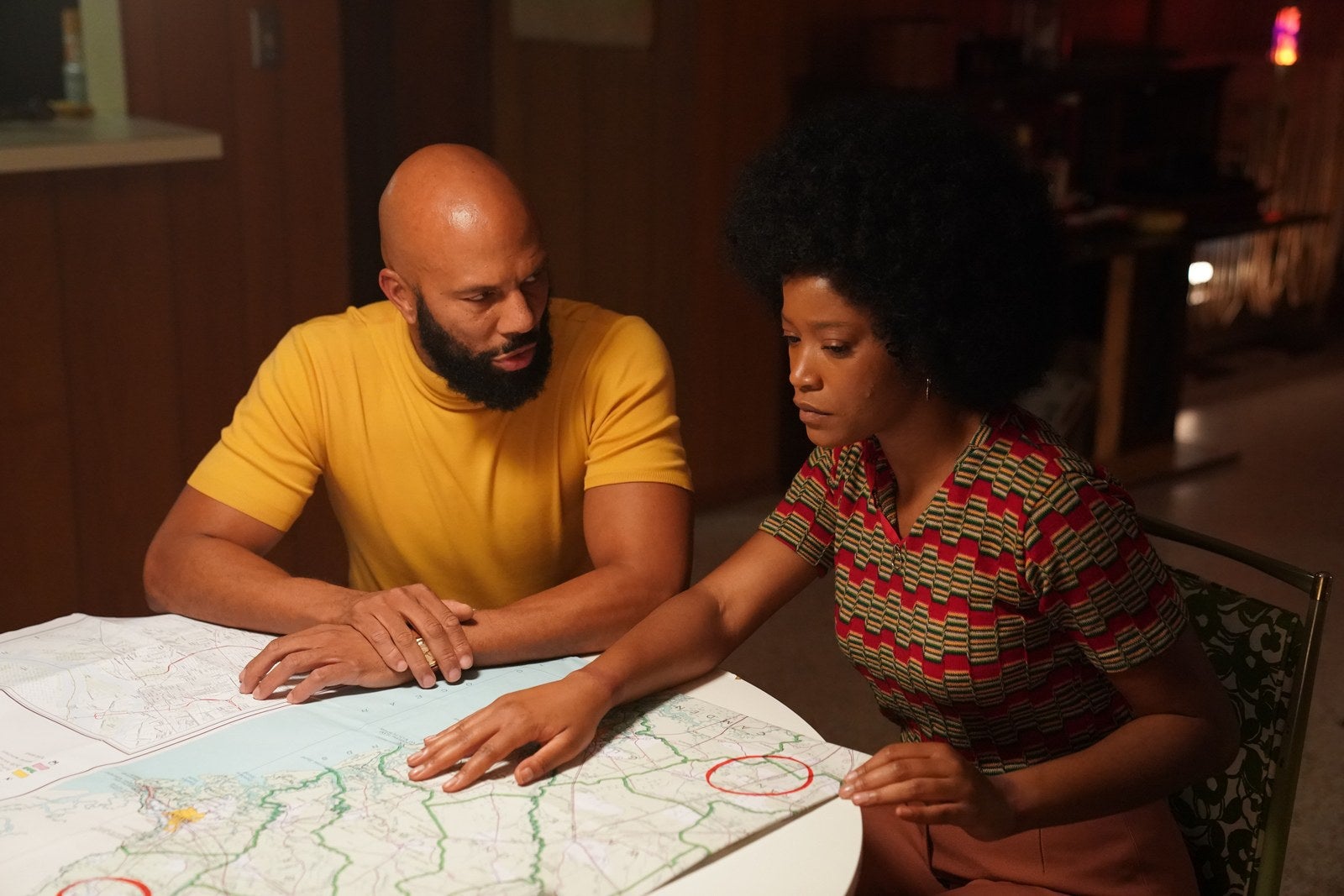In a landscape where Black viewers are swearing off depictions of slavery and Black pain in their media, Keke Palmer and Common made the bold choice to turn the slave narrative on its head.
Their new film Alice, which already made waves at Sundance in January, tells the story of a woman who breaks out of bondage and discovers freedom in the most unexpected way possible,
“I think it’s important that we actually look at history and I think it’s important, especially for Black people, that they feel safe, that they can explore history in a way that’s not going to make them feel bogged down and victimized,” Palmer said of her new film.

Palmer stars as the titular Alice, a slave living on a Georgia plantation that flees captivity after a violent encounter with her owner. Stumbling through the woods she encounters a highway…soon to discover that it is actually 1973 and slavery has been abolished for over 100 years.
Common portrays her rescuer Frank, who acclimates Alice to the modern world, where she quickly comprehends the lies that have kept her in bondage and the promise of Black liberation.
“I think that the way that Black American history as it pertains to slavery is even told, I think that’s a part of making us not want to talk about it,” Palmer observed.
But the film, written and directed by Krystin Ver Linden, takes the familiar territory of escaping slavery and modernizes it to examine what that truly means once the physical chains have been broken.
“It’s not a movie about slavery in the 1800s,” Common said of the film. “It’s really a movie about being trapped and enslaved in any generation and how to get free from that in any time period, because there are people that are enslaved right now. There were people that were enslaved in the ’70s – and not physically.”

Whereas so many films focus on the horrors and harsh realities of chattel slavery in the United States, Alice, Common says, focuses on the triumph of discovering and defining freedom after the fact.
“I think what Krystin did was take that situation and turn it into a whole other perspective. She told a story in a joyful way.”
For Palmer, the concept of freedom and what that means across generations of Black people is the film’s major sticking point.
“Frank represents so many of us today that are living in a time and era where we don’t feel free, where it’s so hard to remind ourselves to activate,” she said. “Freedom really is existing as you are, even in a space that tells you that you’re not allowed to be. And that’s hard when you keep getting so many subliminal
messages that you can’t exist as you are, where you need to assimilate.”
“I mean – the concept of codeswitching, the concept of not being able to rock your natural hair in the workplace, the concept of ‘you can go to jail at any moment’ – all of those things are what remind Black people in America that ‘I’m not allowed to exist in a happy space. I’m not allowed to truly be
at peace.'”

“The Black American experience is a whole different experience,” Common added, noting the subtle differences in the way Black citizens can live and move in other parts of the world, versus the United States which was built on the subjugation of Black people.
“To find freedom from that, it takes a whole lot. But that’s the strength that we do have,” Common continued. “Alice displayed that strength as a black woman, so this is something to celebrate. This film is something to celebrate Black women and just finding your own freedom. I really am inspired by it.”